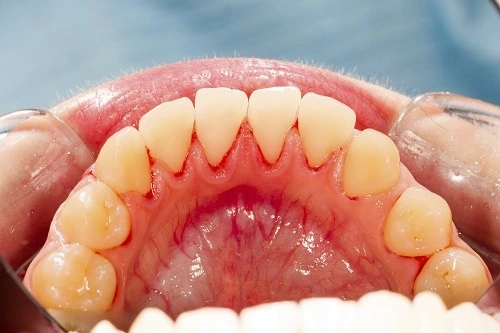

Gum Recession
Smoking restricts your blood flow. As a result, the amount of oxygen that is in your blood is reduced. Your gums, like all other tissues in your body, need enough oxygen to function properly. Without enough oxygen, your gum tissues begin to die out, which then leads to gum recession.
Decreased Saliva Flow
Not only does the restricted blood flow affect the amount of oxygen to your gums, it also leads to decreased saliva flow. Saliva plays an important role in oral health. It helps to wash away leftover food particles and kill bacteria. Without sufficient saliva, your mouth dries out, and a dry mouth is the perfect breeding ground for bacteria.
Tooth Decay and Gum Disease
Smoking has also been shown to increase the amount of plaque on your teeth. Plaque combined with an overpopulation of bacteria can lead to tooth decay and gum disease. Gum disease can be extremely harmful if not treated. Bacteria can travel under your gums, infecting your teeth and jawbone, causing loose teeth that can fall out. Infection can even get into your blood stream and spread throughout your body, leading to other health issues like heart disease and stroke.
Effects on Dental Appliances
If you have crowns, bridges or veneers, smoking can affect those as well. Not only can they irreversibly stain these appliances, they can cause you to lose them. As your gums recede, and your likelihood of gum disease increases, they can become loose, as the teeth that support them become unstable.
Oral Cancer
One of the biggest risks of smoking, or using any other tobacco products, is oral cancer. Oral cancer can affect just about anywhere in your mouth – tongue, cheeks, gums, entrance to your throat. If not caught early and treated, oral cancer can be fatal.
Smoking does more than just stain your teeth; it can have a significant impact on your oral health. Proper oral hygiene can help combat some of the effects, but for the best results, you may want to consider quitting. Not only would it be good for your oral health, it can also be good for your overall health too.
Please contact our office if you have any questions about smokings effects on your oral health.
